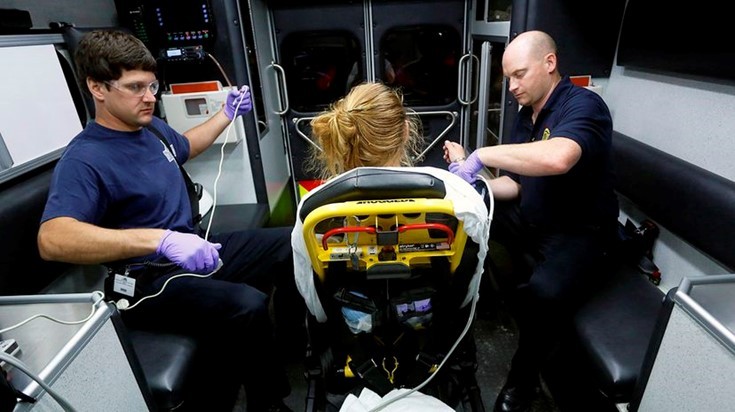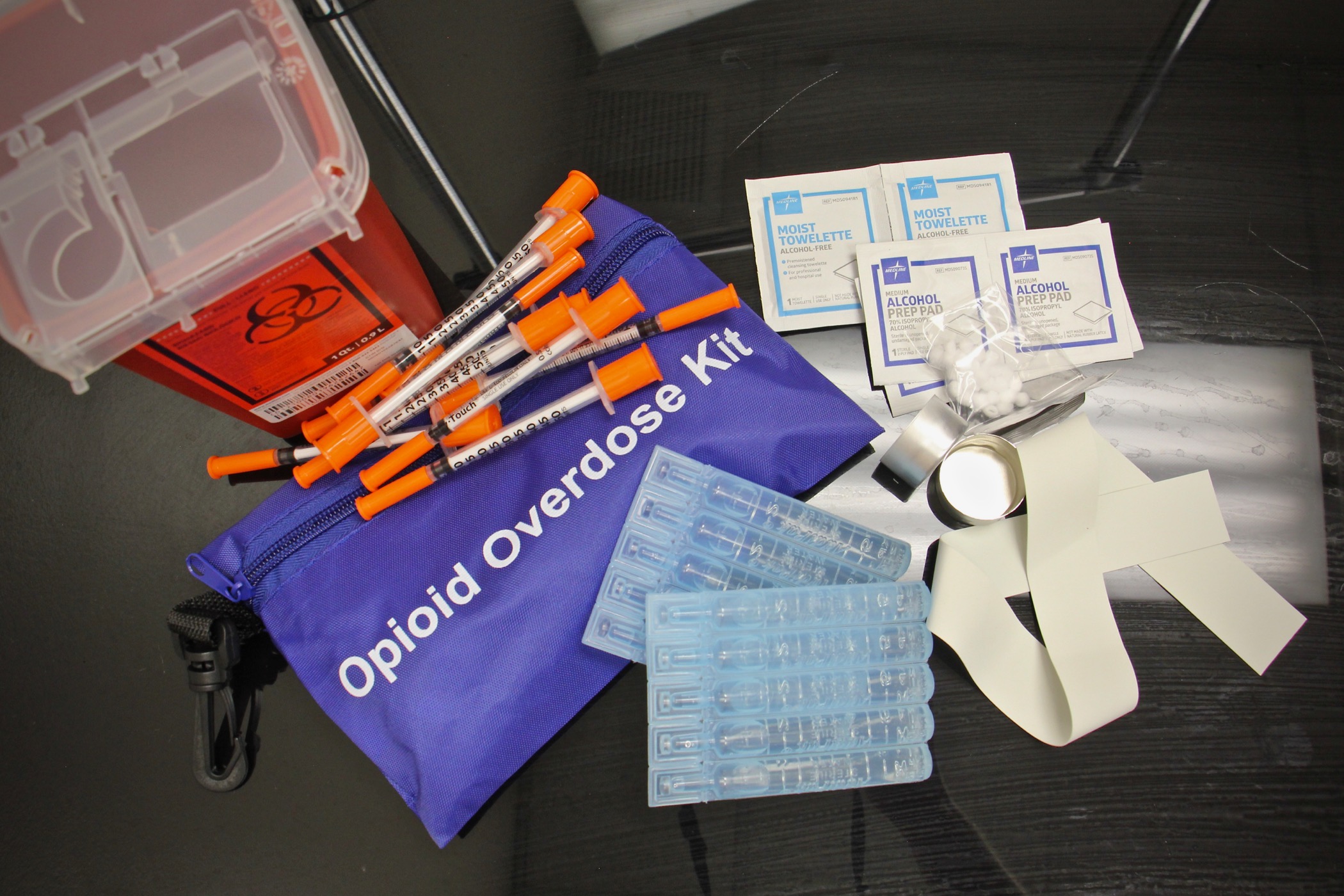Rural Responses to the Opioid Crisis
The opioid epidemic presents challenges for the state’s rural communities due to the limited resources and treatment options available in less populated areas. In some rural counties, people are more likely to experience an opioid overdose than a heart attack. Several collaboratives in rural communities across the state are pursuing innovative solutions to mitigate the opioid epidemic in their communities.

The Problem
In the past decade, opioid related deaths in North Carolina doubled, with nine people per day dying from opioid overdoses in 2020. This issue especially affects North Carolina’s rural areas, which experienced 27.7 opioid-related deaths per 1,000 residents in 2019, according to the CDC (Centers for Disease Control) – compared to urban areas that experienced 21 opioid-related deaths per 1,000 residents. In some rural counties, people are more likely to experience an opioid overdose than a heart attack.
The opioid epidemic presents challenges for the state’s rural communities due to the limited resources and treatment options available in less populated areas. Mental health resources are especially lacking, which is especially pertinent given that half of all opioid medications prescribed in the nation are for people with depression or anxiety. Dr. David Lowery, the chief medical officer at Caldwell UNC Health Care, shared that until 2021, Caldwell County had no psychiatrists or clinical psychologists practicing in the county, leaving its residents devoid of options for mental health treatment. The stigma associated drug addiction compounds these challenges, according to Devin Lyall, the executive director of the nonprofit Wilkes Recovery Revolution. Without adequate resources for prevention, treatment, and recovery, continued opioid use has the potential to lead to lower performance in school, changes in brain structure, and increased criminal behaviors.
The Solution
One of the most prominent solutions are drug courts, such as the Family Accountability and Recovery Court located in the state’s eighth judicial district, which is composed of Greene, Lenoir, and Wayne counties. In 2011, the state eliminated funding for drug courts, but Judge Elizabeth Heath, the Chief District Court Judge of the Eighth District, decided to keep theirs open due to the various benefits it provides the community. The U.S. Department of Justice recognizes drug courts as specialized court docket programs that focus on criminals, juvenile offenders, and parents involved in child welfare cases who have drug or alcohol-related issues. The purpose of these courts is to assist low-level offenders with drug treatment and recovery by placing them in a mandatory treatment and recovery program in exchange for jail time, while remaining on probation. The eighth district has found that most referrals to this program come from the Abuse, Neglect, and Dependency Court and the Department of Social Services.
Farther east, the 2nd Judicial District Opioid Coalition provides a holistic program for the five rural counties of Beaufort, Hyde, Martin, Tyrell, and Washington. Serving approximately one hundred people weekly, this collaborative meets people at various stages of the healing process, whether through harm reduction, treatment, or recovery. Residents are provided resources, such as Narcan training, as well as gas cards and hot lunches to help them in their daily lives.
The Players
The Healthy Wilkes: Community Opioid Prevention and Education team brings together health and community advocates, first responders, and others to implement collective solutions in the face of the opioid epidemic. A focus of their efforts involves helping people deal with adverse childhood experiences, as trained professionals help residents cope with stress and tough experiences in the Reconnect for Resilience group. Another initiative is the harm reduction group, which works with the local community to provide a support structure to those struggling with addiction. The team also advocates for increased usage of Medication Assisted Treatment (MAT), which provides people struggling with addiction with behavioral therapy and medication that impedes brain activity that drives opioid use. Wilkes County defines itself as a “community in recovery,” and nowhere is that clearer than at Wilkes Recovery Revolution. It assists residents struggling with addiction by helping them find whatever resources they need, such as detox or employment.
The 2nd Judicial District Opioid Coalition formed in response to a lack of treatment and recovery options in the rural five-county area. Local leaders involved include the district attorney, chief district court judge, human resources groups, and law enforcement agencies from the region. Despite the lack of resources when the group formed, they worked hard to build community awareness and provide solutions. These solutions include syringe exchange programs, overdose prevention training, Naloxone kits and medication lock boxes, and increased efforts to provide mental health treatment.
The Promise
North Carolina is set to expand its capacity for treatment, recovery, and care as it allocates its share of the opioid settlement funds resulting from litigation with pharmaceutical companies. A memorandum of agreement between the state government and local governments specifies how the funds are to be distributed, with 15 percent going to the state and the remaining 85 percent going to local governments at the county and municipal level.
Progress is also being made in terms of the overall response and attitudes toward the opioid epidemic and the people experiencing it. Devin Lyall from Wilkes Recovery Revolution sees the stigma around addiction continuing to decrease if people continue to engage in recovery efforts and dedicate themselves to the process of finding solutions. Such efforts can be seen within the Family Accountability and Recovery Court in the 8th Judicial District and the 2nd Judicial District Opioid Coalition. Through collaboration, progress, and commitment to innovative ideas, there is hope on the horizon that major improvements will be made in North Carolina.



